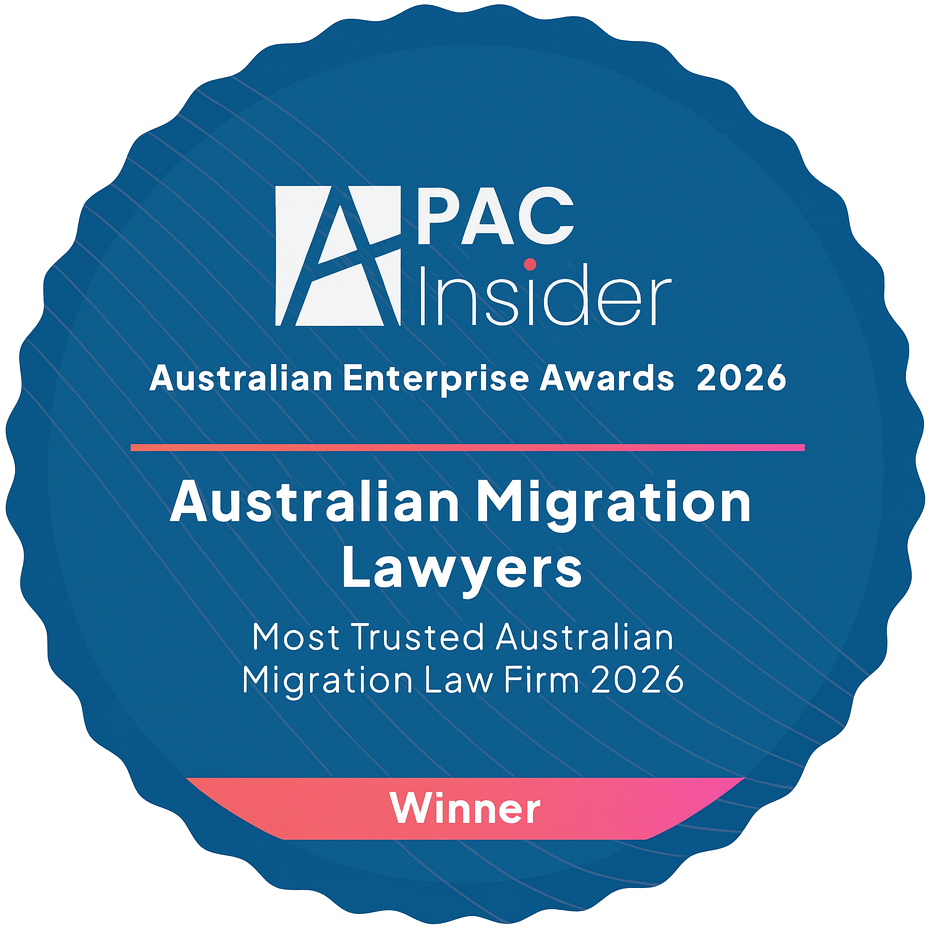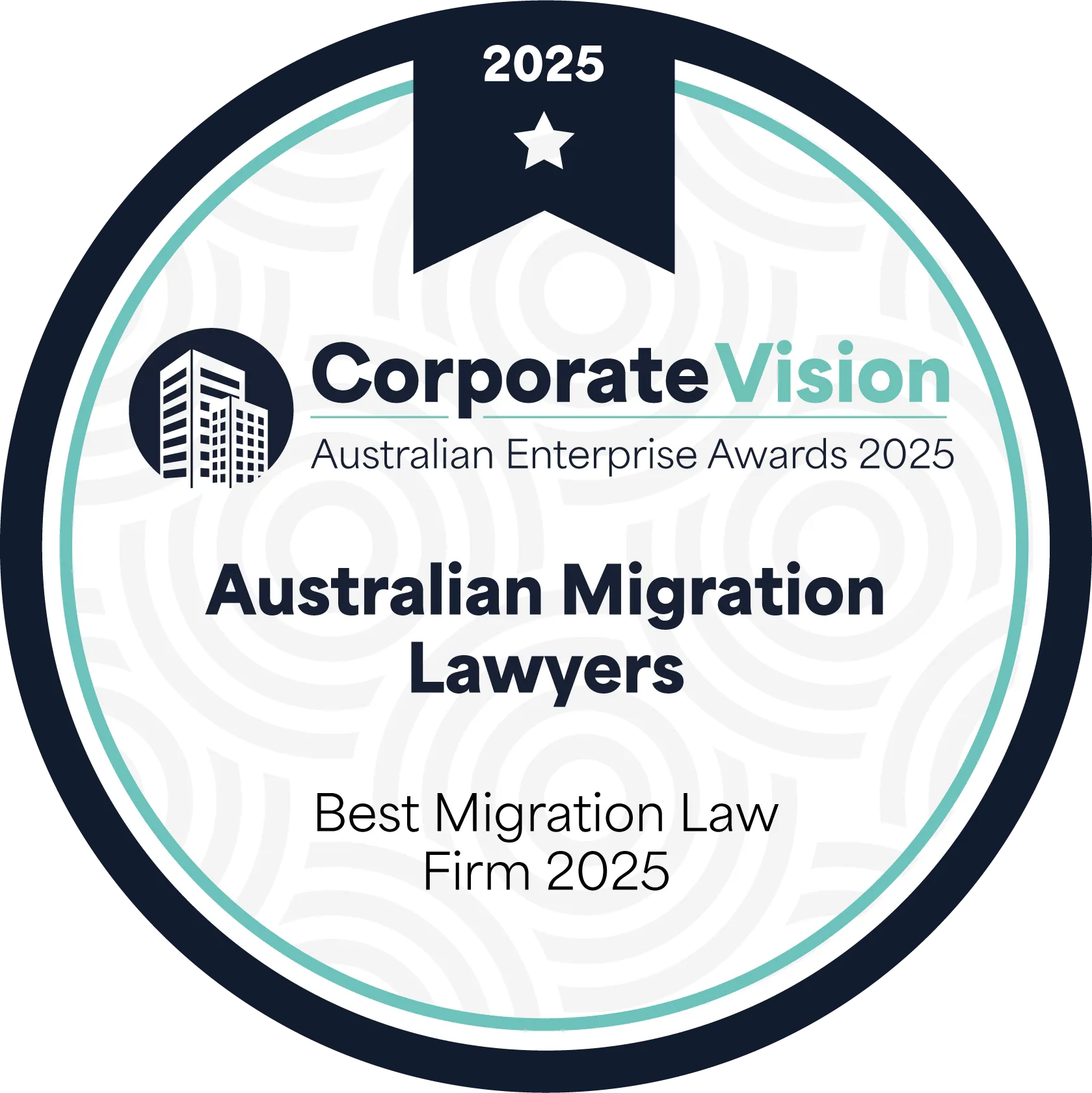Australia's largest independent migration law firm. Open 7 days! Book here.
Need help? We are available 7 days a week.

.webp)

Winner of Most Trusted Australian Migration Law Firm 2023-2026

Ranked 1st for migration law in 2023, 2024 & 2025

Ranked in the top migration lawyers 2023, 2024 & 2025

Ranked the best migration law firm 2024 & 2025

A Protection visa (subclass 866) is a type of visa granted by the Australian government to individuals who are unable to return to their home country due to a well-founded fear of persecution or meet the complementary protection criteria. Once you have applied for a Protection visa, you will likely be requested to attend a Protection visa Interview by the Department of Home Affairs (DoHA). A Protection visa interview is an important part of the visa application process and is designed to assess the credibility of your claim for protection.
The interview is an opportunity for you to provide further information about your application and reasons for seeking asylum in Australia, and to clarify anything in your application that was unclear. Therefore, it is important to be aware of the kinds of questions you can expect and be prepared accordingly.
To streamline the process and adhere to regulatory requirements, you should bring the following documents to your interview:
To enhance the accuracy and integrity of the interview process, the DoHA employs audio recording. The interviewing officer will openly discuss this aspect with you at the commencement of the interview. Seeking your permission, they will request to record the discussion to ensure DoHA has accurate record of what you talk about. Your personal information is safeguarded throughout the interview process. DoHA adheres to strict confidentiality protocols, and the handling of your details is conducted with the highest level of discretion.
You may choose to bring your Australian Migration Lawyer as well as a support person such as a friend, family member, or anyone you trust to offer moral support. Additionally, for applicants whose proficiency in English may be limited, DoHA will provide you with an interpreter. Interpreters are strictly bound by confidentiality and are prohibited from disclosing any information they hear during the interview.
The Protection visa interview is designed to provide the DoHA with a deeper insight into your circumstances and the reasons behind seeking protection in Australia. The case officer will be considering whether you meet the definition of a refugee or should be granted complementary protection. The interview questions are designed to test if what you have said in your written application is really true.
The officer will try to find any differences between what you have written in your application and what you are saying during the interview. It is important for you to be honest and truthful during the interview, as any discrepancies between your Protection visa interview answers and your written application may lead to the rejection of your application. The interviewing officer should inform you in the case where such discrepancies arise, affording you an opportunity to provide clarification.
While the specifics of questions can vary based on individual circumstances, there are common themes that often arise during Protection visa interviews. These may include inquiries about the reasons for seeking protection, the nature of persecution faced in your home country, and the steps taken to address or escape from the threats you've encountered.
Questions may also go over your personal background, family situation, and any supporting evidence you've provided in your application. Some of the questions you may be asked include:
Relevant adverse information is information which would constitute the reason, or part of the reason, for deciding that you are not eligible to have your decision reviewed by the Immigration Assessment Authority. The DoHA ensures fairness by providing applicants with an opportunity to comment on such information before a decision is made.
If adverse information surfaces, take this chance to provide your perspective, clarifications, or additional context. This is an opportunity to address concerns and present a comprehensive view of your circumstances.
[free_consultation]
If you are interested in getting more information about a Protection visa, get in touch with Australian Migration Lawyers for a consultation.
[/free_consultation]
DoHA places the utmost significance on the integrity of information provided during the Protection visa interview. Giving false or misleading information to DoHA is not only a violation of Australian law but can lead to criminal penalties and the rejection of your application. It is thus imperative to be forthright and transparent to uphold the integrity of the application process.
Following the interview, DoHA will assess your application and the details shared during the interview. DoHA might undertake additional investigations or seek further information from you or other sources. The timeframe for a decision varies based on the complexity of your case and the volume of applications being handled. Despite potential variations, DoHA strives to expedite the processing of Protection visa applications. You can conveniently monitor the status of your application online through the ImmiAccount portal.
In the event of your application being declined, there is an option to seek a review of the decision through the Administrative Review Tribunal (ART). The ART serves as an independent entity responsible for reviewing decisions made by DoHA. Should you opt for a review, it is crucial to adhere to the specified timeframe and furnish any supplementary information or evidence that could strengthen your case. Alternatively, you have the choice to submit a new application, especially if your circumstances have undergone changes since your initial submission.
To enhance your readiness for the Protection visa interview and to navigate the complexities with confidence, consider enlisting the assistance of Australian Migration Lawyers, who can provide you with tailored legal advice, guide you through the interview process, and offer valuable insights on effective question responses.
Furthermore, in the event that your application being declined, Australian Migration Lawyers can play a crucial role in your next steps. Should you choose to seek a review of the decision through the Administrative Review Tribunal (ART), Australian Migration Lawyers stand ready to assist you in your decision-making process, outlining expectations, and presenting options for appealing a decision or initiating a new application. Moreover, in consideration of changed circumstances since your initial submission.

We have created comprehensive visa guides that outline the ins and outs of visa applications. Get yours today.